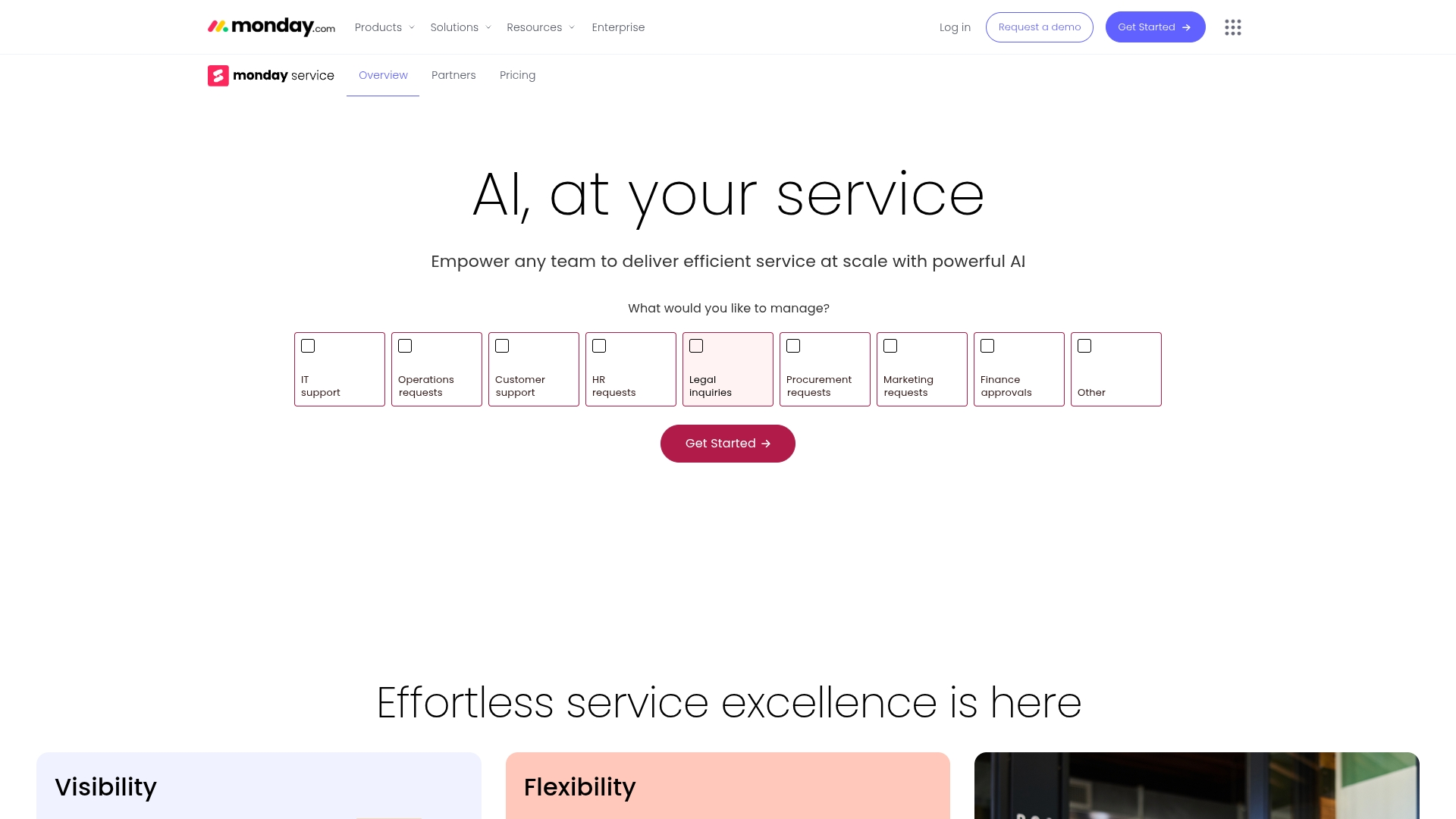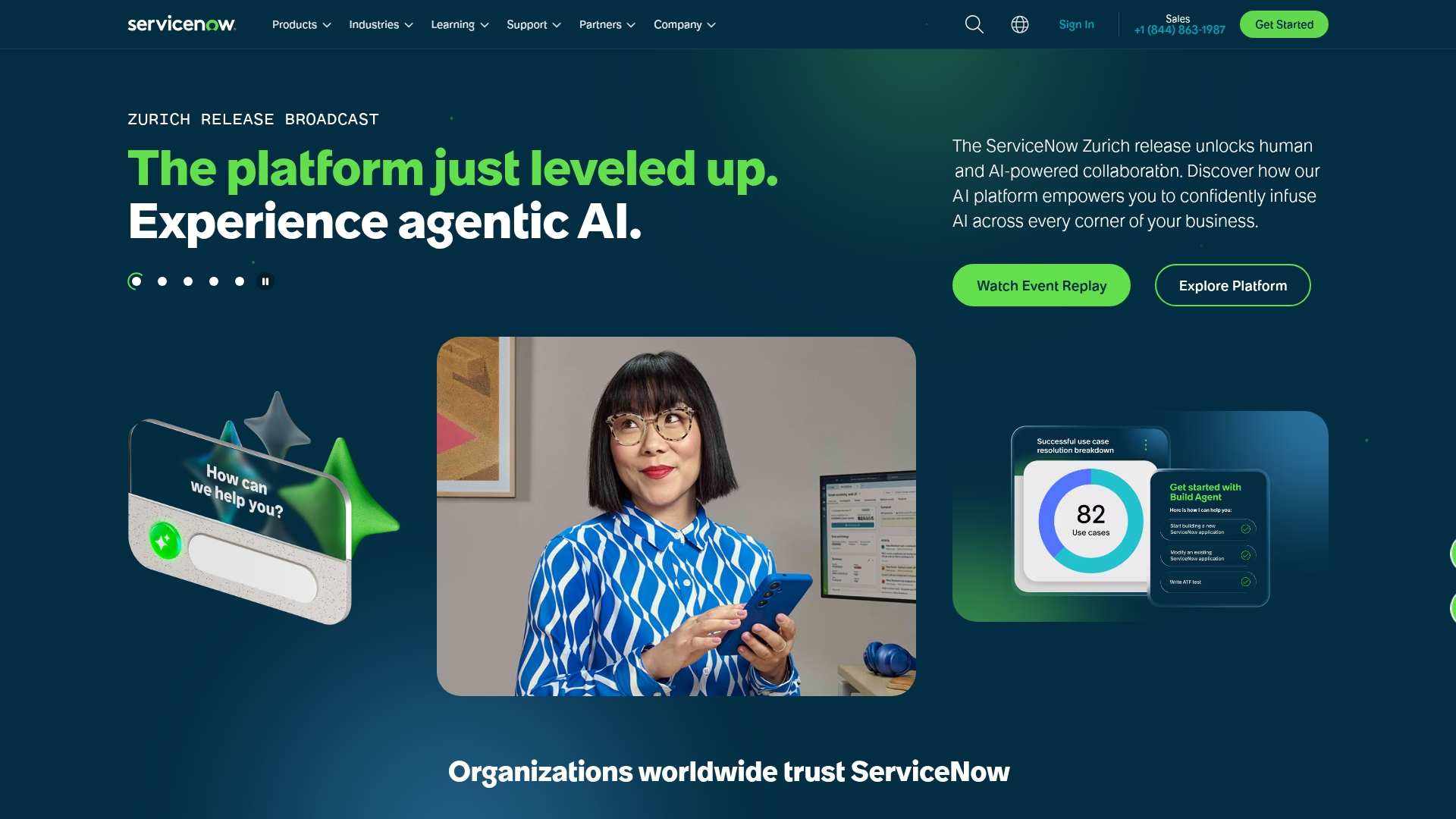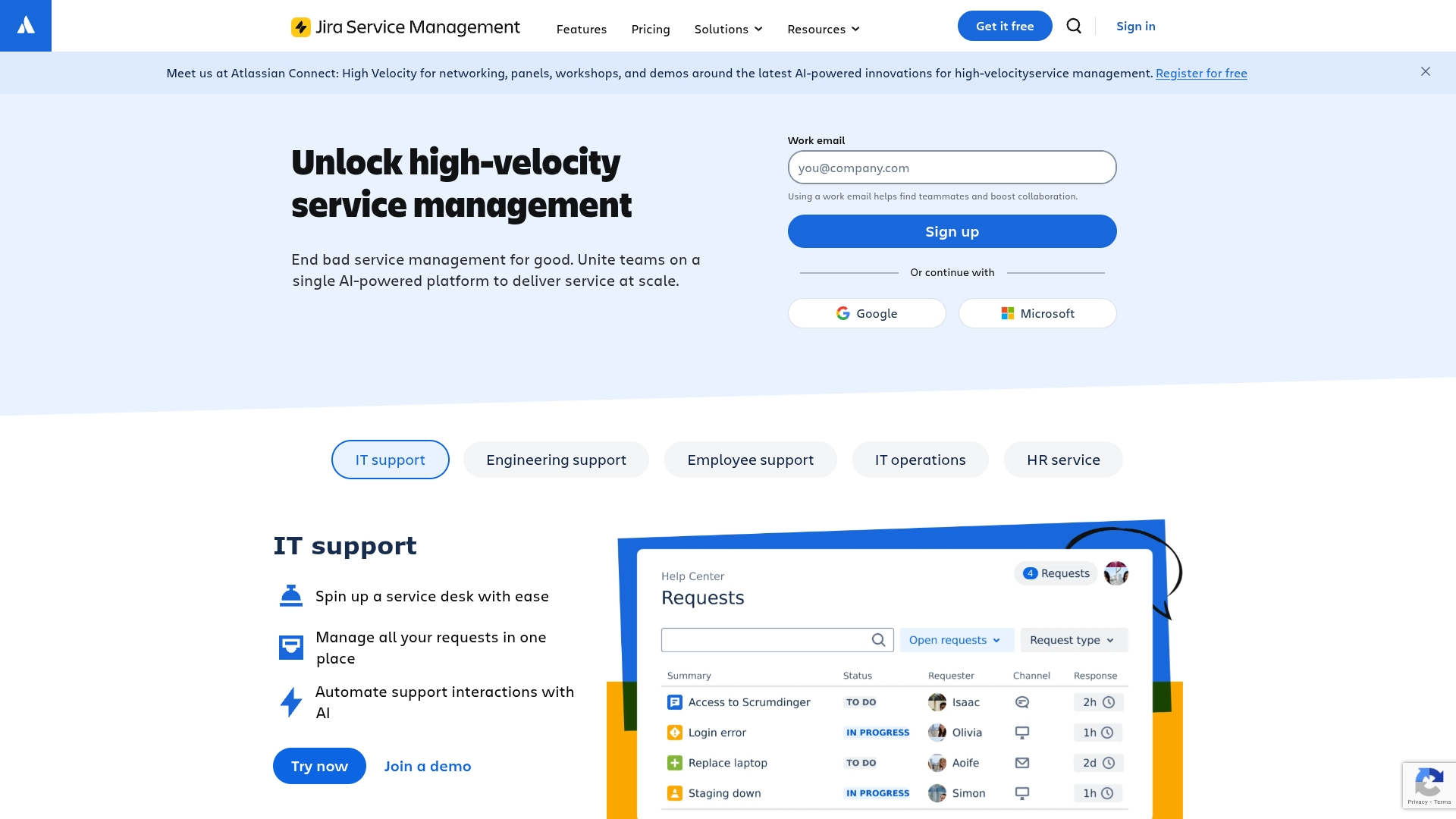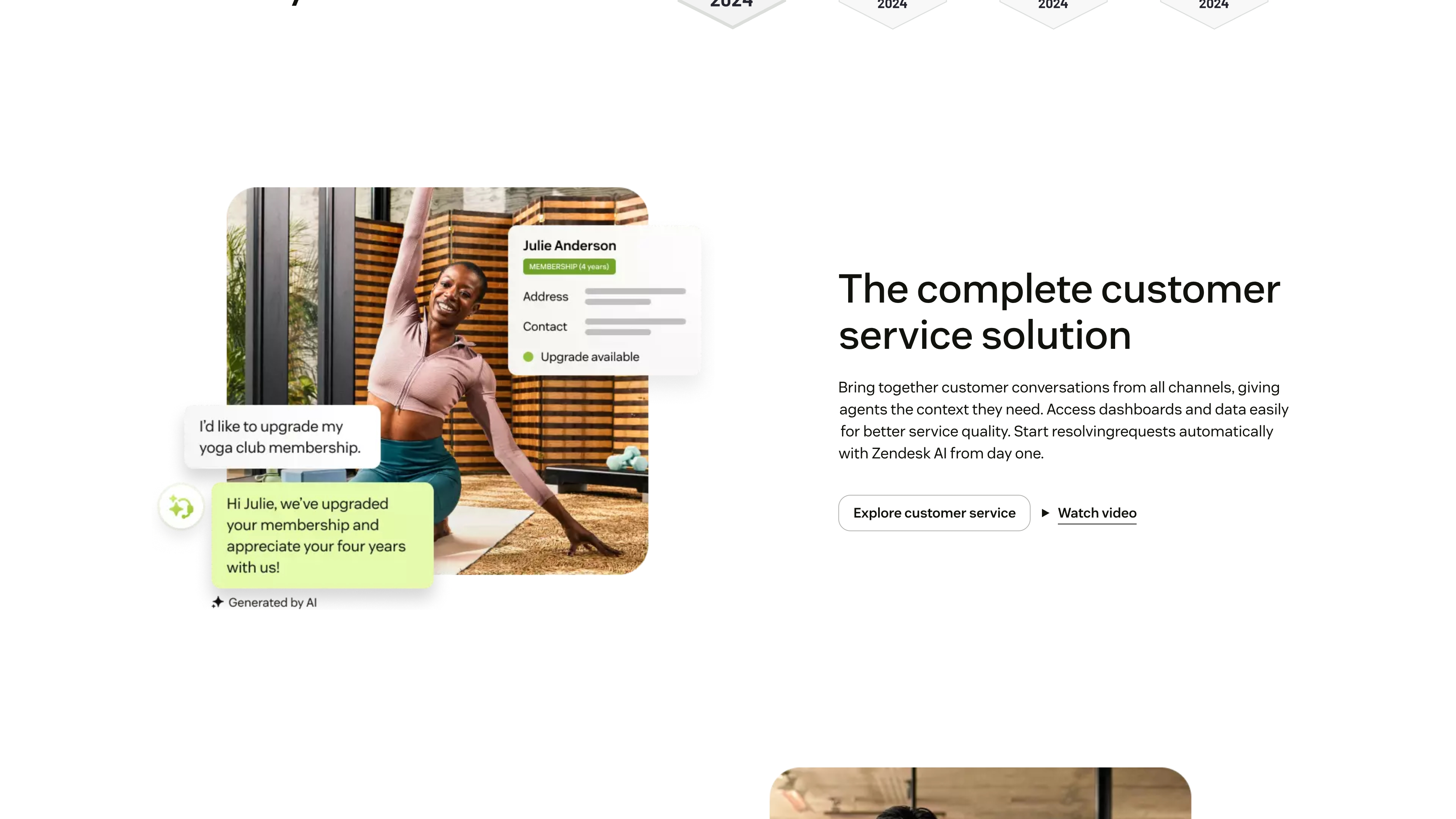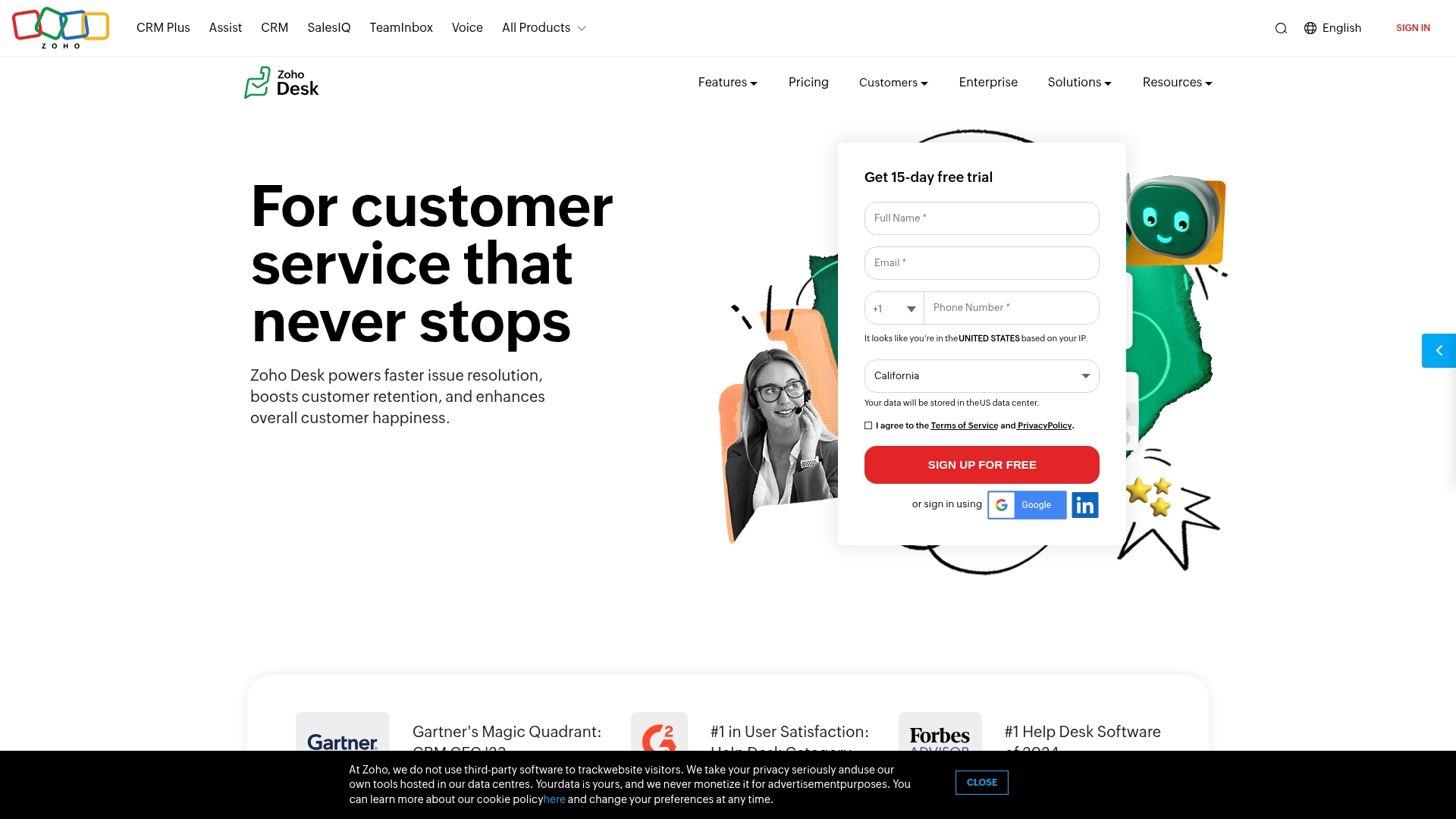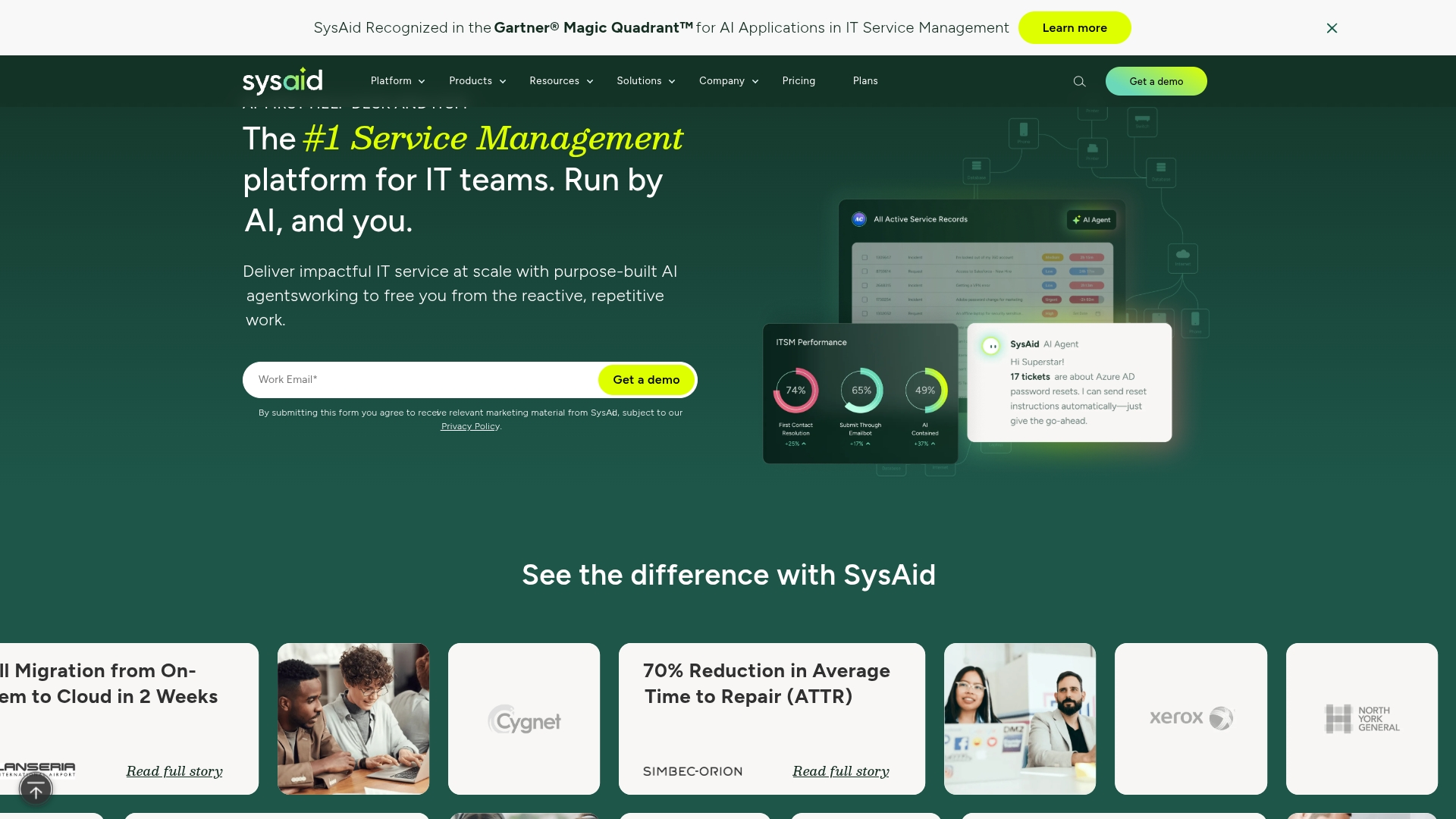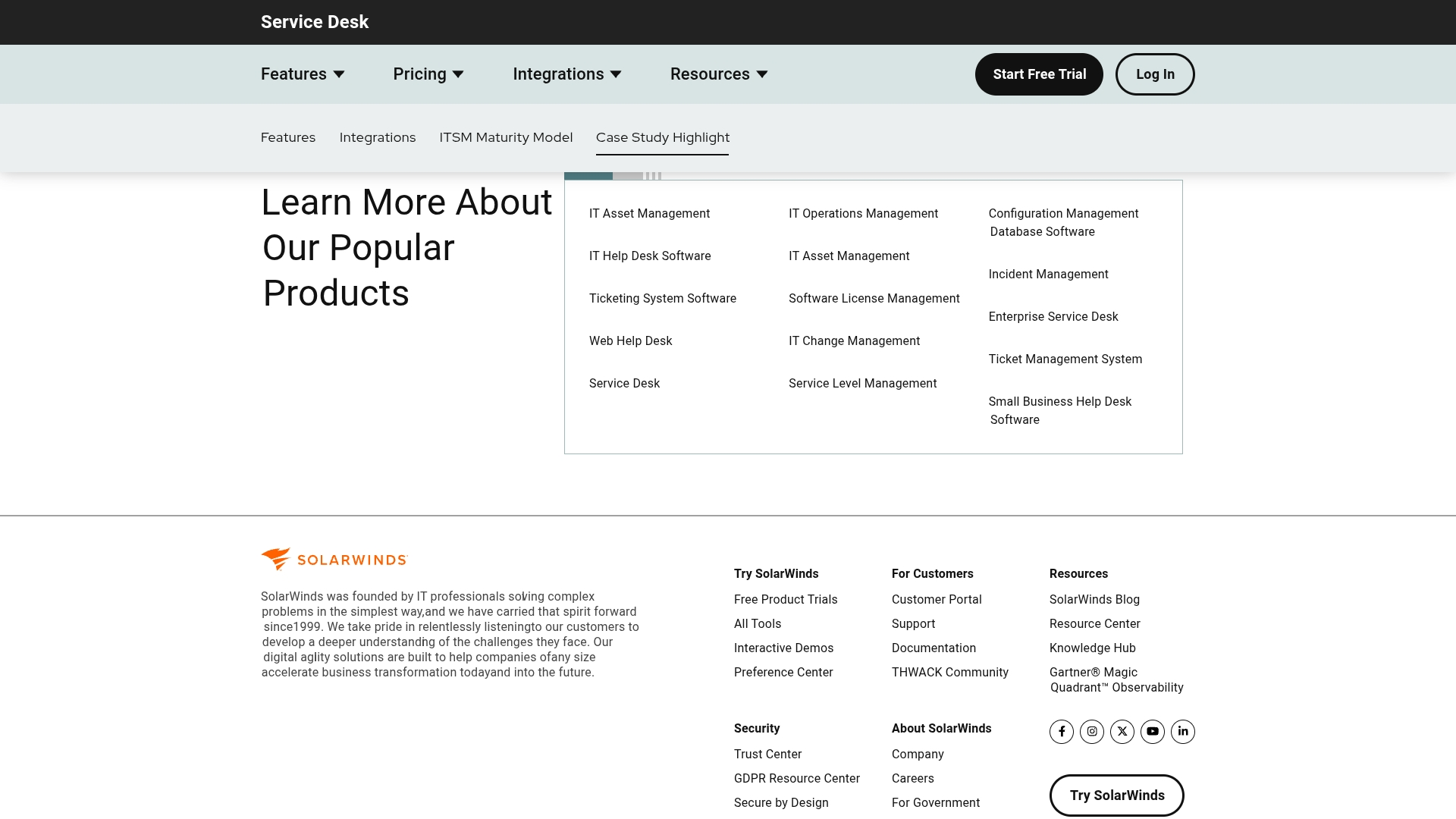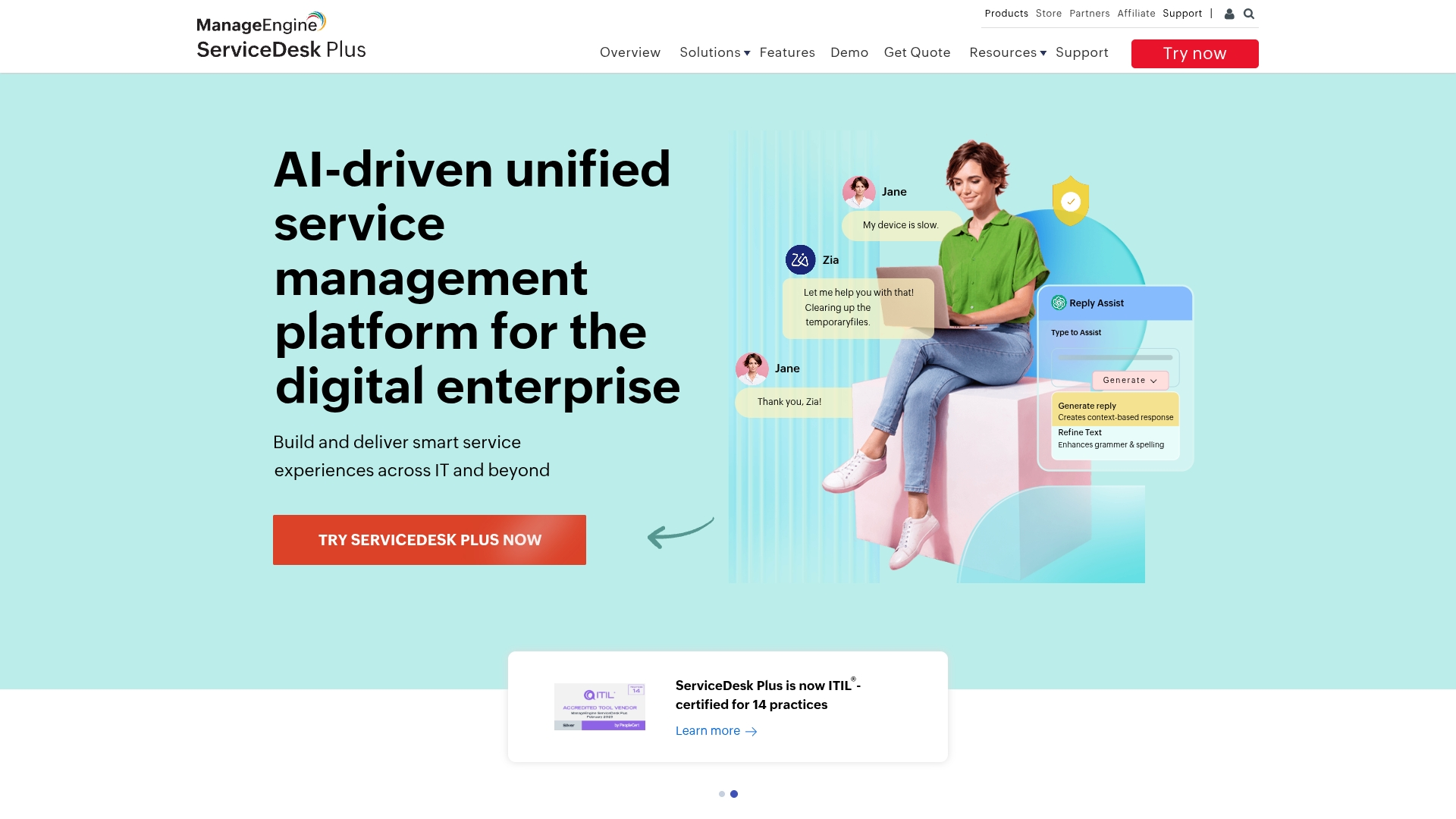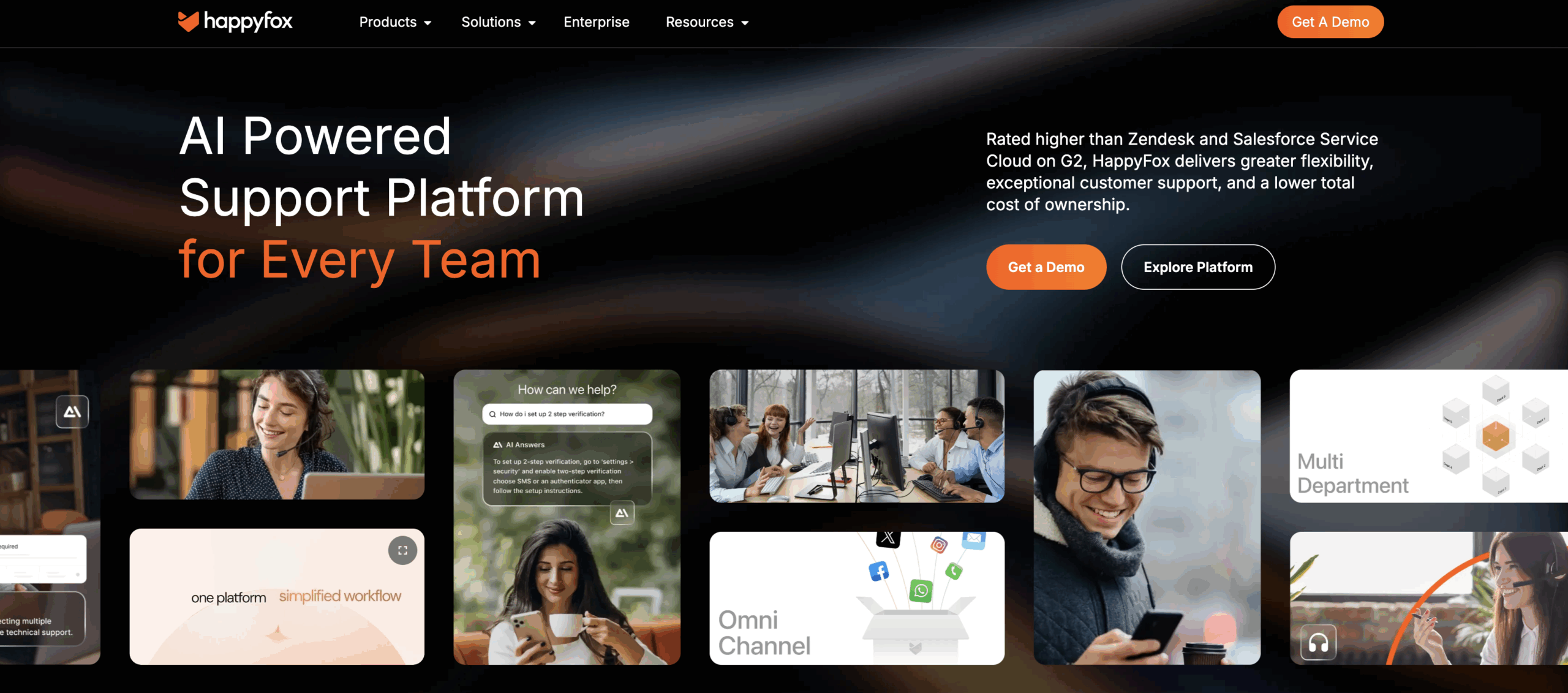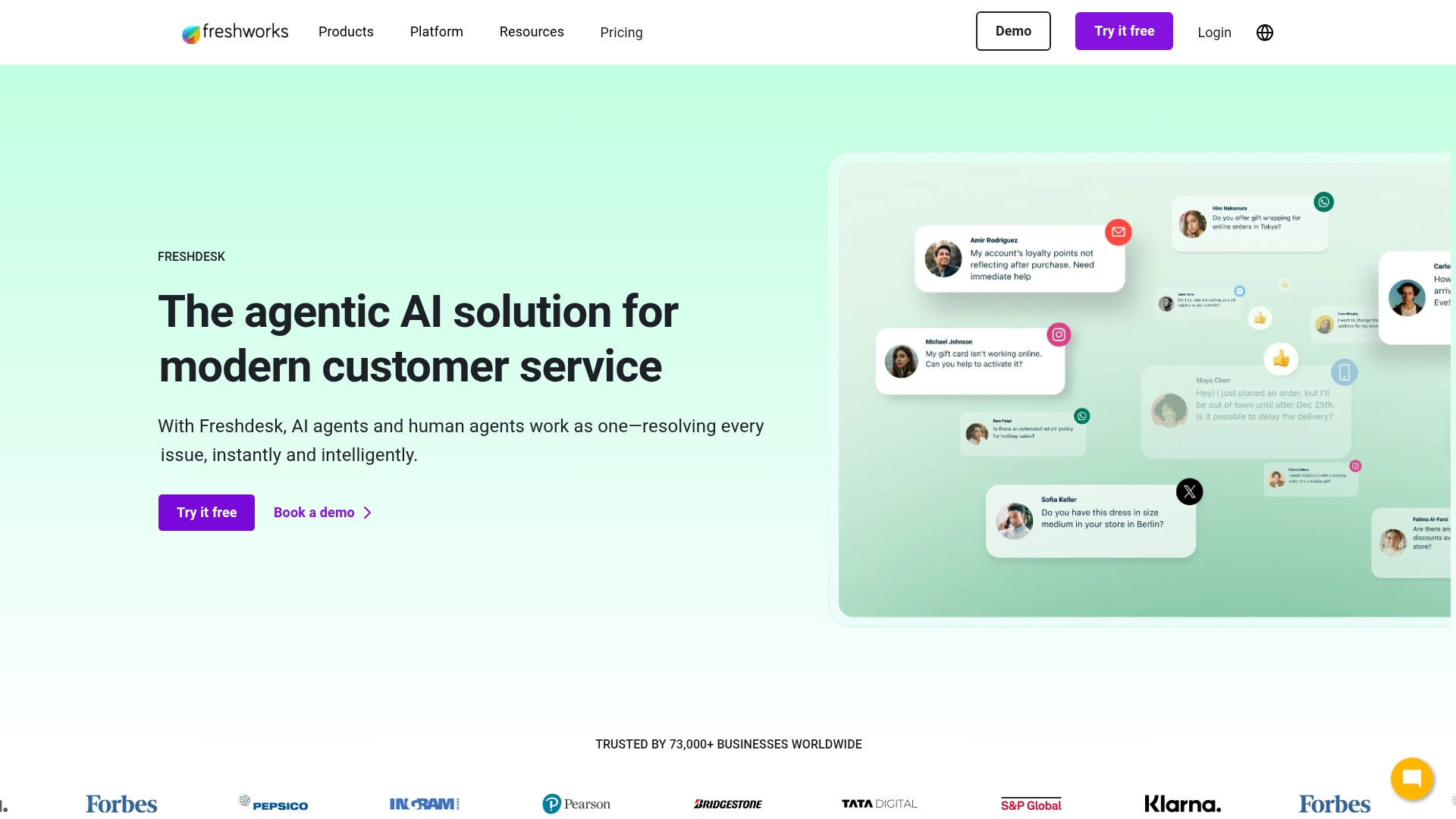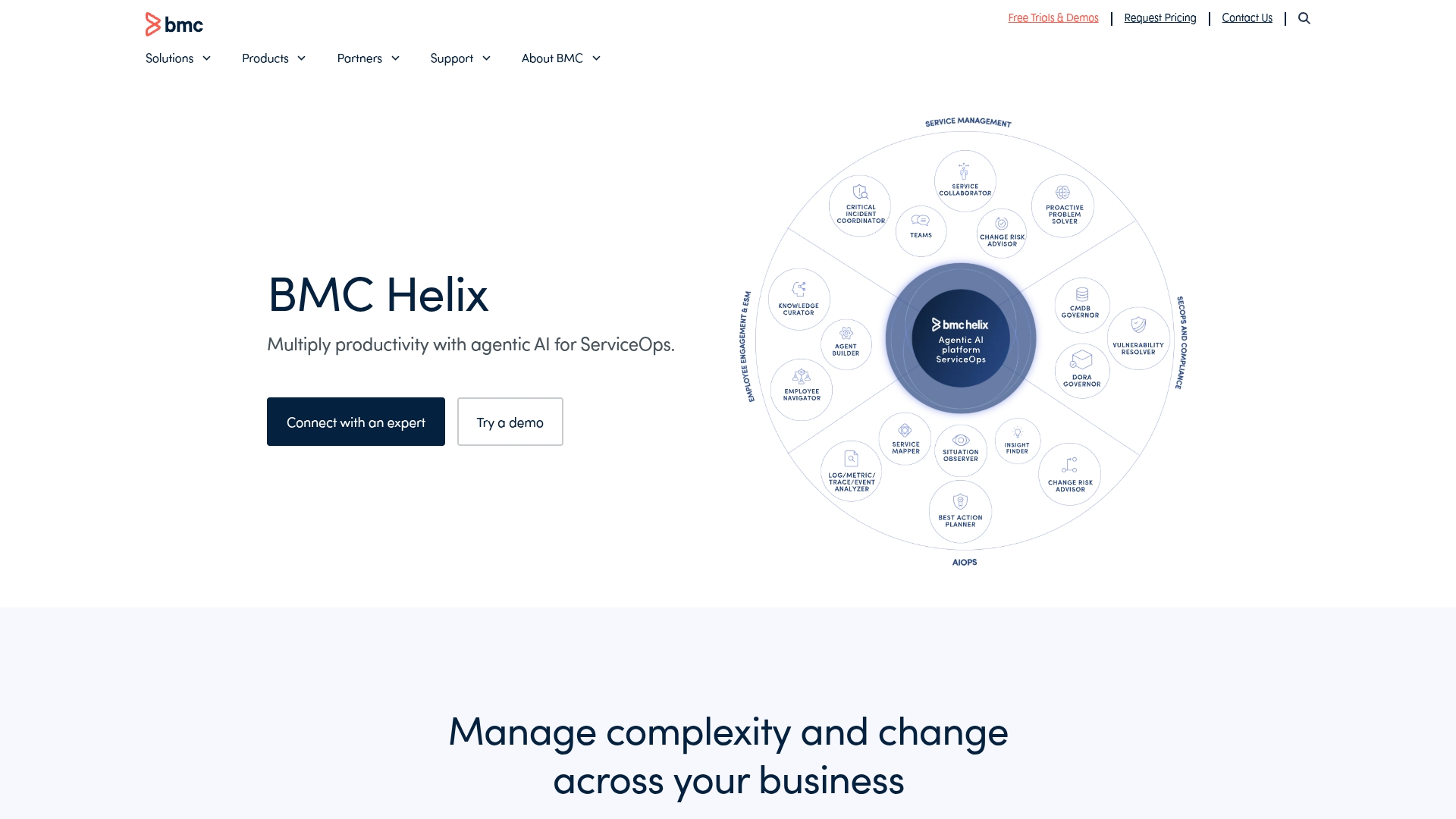Service management tools play a crucial role in keeping operations efficient and teams aligned. But as organizations grow, the same systems that once supported them can begin to create friction. When workflows become scattered and teams lose visibility, even simple requests take longer to resolve — and the quality of service begins to slip.
In 2025, many teams are re-evaluating how they manage service delivery. They are looking for flexible platforms that bring departments together, automate routine work, and adapt as business needs evolve. That search often leads to exploring Freshservice alternatives — solutions built to offer greater scalability, integration, and insight.
This guide highlights the top competitors, what to consider when comparing them, and how to identify the platform that best fits your team’s goals. Whether you are optimizing IT workflows or improving internal service requests, the right choice can transform how your organization delivers support.
Key takeaways
- Scalable service management tools: as organizations grow, they need flexible platforms that evolve with their operations and remove workflow friction.
- AI-driven automation: modern solutions use predictive insights to route requests, accelerate resolutions, and improve visibility across the organization.
- Cross-department collaboration: unified platforms connect IT, HR, and other teams, creating seamless workflows and stronger accountability.
- Smarter evaluation criteria: when comparing Freshservice alternatives, focus on scalability, usability, integration depth, and implementation speed.
- monday service advantage: with no-code workflow customization and built-in AI, teams can simplify service delivery and achieve faster, more connected support
Why teams are exploring Freshservice alternatives
Great service starts with great systems — but when your tools create more friction than flow, even the best teams begin to stall. As organizations scale, processes that once worked smoothly can start to feel clunky. Tickets pile up, visibility fades, and what should be quick fixes turn into slow, manual marathons.
That is why many teams are rethinking their approach. They want platforms that work with them, not against them — systems that automate the busywork, connect every department, and flex as their needs evolve.
A modern alternative should not just manage tickets; it should power collaboration, speed, and clarity across the entire organization. When your platform keeps pace with your ambition, service delivery becomes a true competitive advantage.
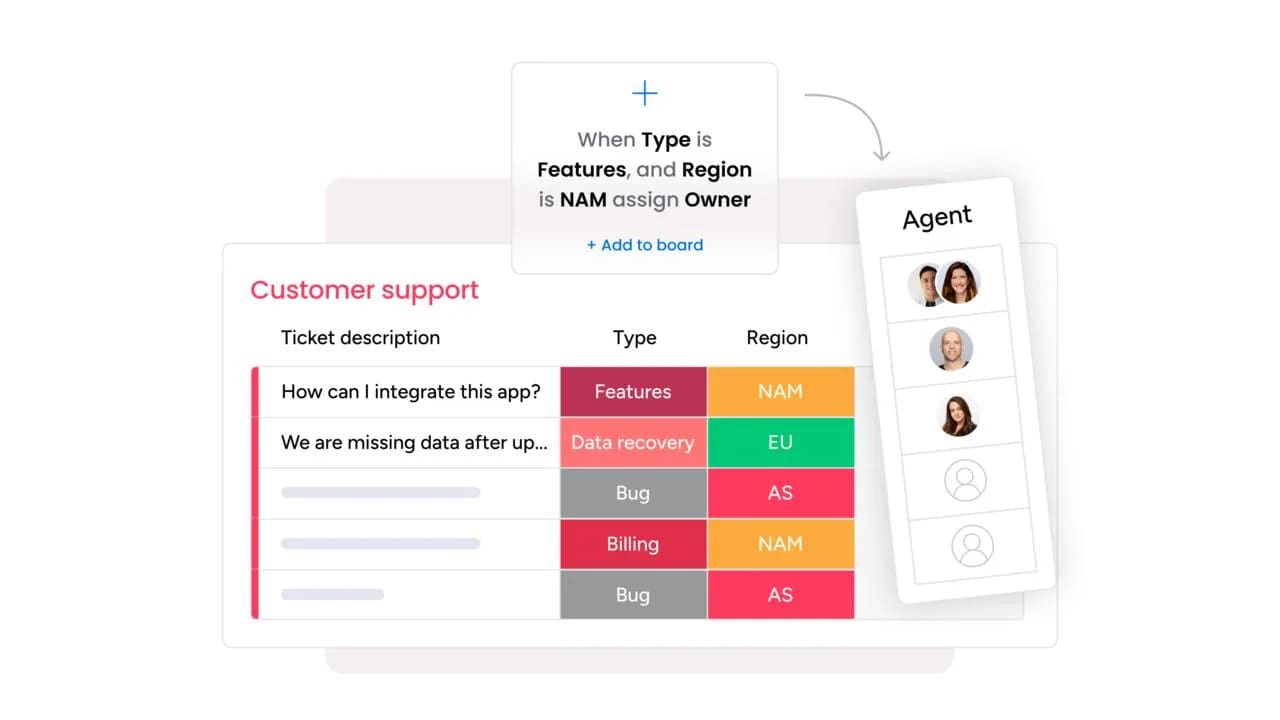
Key factors when evaluating alternatives
Choosing the right service management platform is about more than comparing feature lists. It is about finding a solution that can grow with your organization, adapt to shifting priorities, and simplify the way teams work together.
High-performing service teams focus on a few essential capabilities:
- Scalability: the platform should handle increased ticket volume and complexity without slowing down.
- AI-driven efficiency: automation that genuinely learns from activity, helping teams eliminate repetitive work.
- Seamless integrations: out-of-the-box connections to your existing tools without heavy IT setup.
- Ease of customization: no-code or low-code options that let teams adjust workflows instantly.
- Real-time visibility: clear analytics and dashboards that track performance across departments.
Platforms like monday service bring these factors together by combining intuitive workflow design, built-in AI, and transparent reporting. The result is a flexible environment that supports both everyday service requests and long-term operational growth — giving teams the freedom to focus on what matters most: delivering exceptional service..
Try monday service12 leading Freshservice alternatives and competitors
Your team is prepared for a service management platform that connects every part of your organization, and you are right to explore beyond the usual suspects. While Freshservice is a prominent player, modern teams demand a solution that is more flexible and intuitive to keep pace with the speed of business.
Achieving a true victory isn’t just about managing tickets; it’s about engineering a collaborative service engine that empowers your entire organization to deliver outstanding support. This requires dismantling silos and equipping everyone with the visibility and tools needed to solve problems with greater speed and precision.
To assist you in finding the perfect fit, we have put together a detailed analysis of the top contenders below. Let’s explore the alternatives that can help you streamline operations and scale with confidence.
1. monday service
By integrating AI-powered automation that learns from organizational patterns, monday service accelerates resolution times and redefines service delivery.
The platform bridges traditional service desk operations with broader organizational workflows, making it ideal for teams who need seamless cross-department connectivity. Built on the intuitive monday Work OS, it empowers any team to deliver exceptional service without heavy implementation.
Example: monday service unifies ticketing, knowledge management, and service operations on a single collaborative platform that extends beyond IT to support HR, legal, finance, and other departments across the organization.
Key features:
- AI-powered ticket classification, routing, and response suggestions that learn from organizational patterns.
- No-code workflow builder for customizing service processes, forms, and automations without technical expertise.
- Unified analytics dashboards providing real-time visibility across service metrics, project progress, and team performance.
Pricing:
- Basic: $9 per seat/month (billed annually).
- Standard: $12 per seat/month (billed annually).
- Pro: $19 per seat/month (billed annually).
- Enterprise: custom pricing with advanced features and 24/7 priority support.
- Discounts: annual plans save 18%.
Why it stands out:
- Seamlessly connects service requests with project management and team collaboration workflows.
- AI agent resolves tickets instantly using historical data and knowledge base for personalized solutions.
- Drag-and-drop customization allows teams to build workflows in minutes without coding knowledge.
2. ServiceNow
For large organizations with sophisticated service delivery needs, ServiceNow provides an enterprise-grade management platform built on comprehensive ITIL frameworks. Its specialty lies in unifying complex IT operations on a single data model, making it a powerful choice for enterprises with demanding requirements.
Use case: ServiceNow transforms IT from a reactive cost center into a proactive business partner through AI-powered automation and unified service delivery across enterprise departments.
Key features:
- AI agents that autonomously complete tasks, route incidents, and provide intelligent recommendations for faster resolution.
- Single platform architecture that unifies tools, systems, and data across IT operations, HR, and other business functions.
- Comprehensive ITIL-based modules including incident management, problem management, change management, and service catalog.
Pricing:
- Custom pricing based on organizational needs and requirements.
- Scalable packages available for different stages of business growth.
- Contact ServiceNow directly for detailed quote and evaluation.
Considerations:
- Steep learning curve for both administrators and end-users requires significant training investment.
- High implementation costs and complexity demand dedicated resources and specialized expertise.
3. Jira Service Management
Jira Service Management bridges the gap between IT service delivery and software development, creating a unified platform for developer-centric organizations. It excels at connecting service management with software development workflows, making it the go-to choice for teams already invested in the Atlassian ecosystem.
Use case: Jira Service Management delivers high-velocity ITSM for organizations that need seamless collaboration between development, IT operations, and business teams on a unified platform.
Key features:
- Native integration with Jira Software and Confluence for unified development and service workflows.
- AI-powered automation and virtual agents for tier-one support and intelligent ticket routing.
- Comprehensive ITIL-aligned capabilities including incident, problem, change, and asset management.
Considerations:
- Steep learning curve and complex initial setup can overwhelm teams without technical expertise.
- Advanced features like asset management and AI capabilities are locked behind higher-tier plans, driving up costs for growing teams.
4. Zendesk
Leveraging its deep roots in customer service, Zendesk applies proven CX principles to internal service management, offering omnichannel support and AI-driven automation for IT, HR, and employee services. The platform excels at providing familiar, user-friendly service delivery without the complexity of traditional ITSM tools.
Use case: Zendesk leverages its customer service DNA to deliver intuitive internal service management that prioritizes user experience and quick implementation over complex ITIL processes.
Key features:
- Omnichannel support that consolidates employee requests from email, chat, Slack, and Microsoft Teams into a unified agent workspace.
- AI-powered automation with intelligent ticket routing, automated responses, and AI agents that, according to Zendesk, handle over 80% of routine interactions.
- Comprehensive self-service capabilities including knowledge bases, community forums, and automated workflows for common requests.
Pricing:
- Support Team: $19/month per agent (annual) or $25/month (monthly).
- Suite Team: $55/month per agent (annual) or $69/month (monthly).
- Suite Professional: $115/month per agent (annual) or $149/month (monthly).
- Suite Enterprise: $169/month per agent (annual) or $219/month (monthly).
- Additional costs: there are extra costs for AI agents, advanced features, and automated resolutions beyond included limits.
- Discounts: annual billing provides significant discounts compared to monthly plans.
Considerations:
- Pricing can escalate quickly when adding advanced features, with many capabilities locked behind higher-tier plans or available as paid add-ons.
- May lack the depth of specialized ITSM features that organizations with mature ITIL processes require compared to dedicated platforms like ServiceNow.
5. Zoho Desk
Deeply integrated with the Zoho business suite, Zoho Desk offers context-aware customer service management that provides support teams with a complete history of every inquiry.
This specialization in CRM integration and AI-powered assistance makes it ideal for businesses already invested in the Zoho ecosystem or those seeking affordable yet comprehensive service capabilities.
Use case: Zoho Desk excels at providing unified customer service management with seamless integration across the entire Zoho business suite, offering context-aware support that gives agents comprehensive customer interaction history.
Key features:
- Omnichannel ticketing system that consolidates customer inquiries from email, phone, live chat, social media, and web forms into a single platform.
- AI-powered assistant (Zia) that performs sentiment analysis, suggests knowledge base articles, and automates routine support tasks.
- Context-aware functionality that provides agents with comprehensive customer data from Zoho CRM for personalized support experiences.
Pricing:
- Free plan: Available for up to three agents with basic ticketing features.
- Standard: $14/agent/month (billed annually) with advanced automation and reporting.
- Professional: $23/agent/month (billed annually) including time tracking and advanced customization.
- Enterprise: $40/agent/month (billed annually) with advanced analytics and multi-product integration.
Considerations:
- Limited IT service management capabilities compared to dedicated ITSM solutions, requiring separate ManageEngine ServiceDesk Plus for comprehensive ITIL functionality.
- Interface can feel overwhelming for new users navigating the extensive Zoho ecosystem, with some performance slowdowns reported during peak usage.
6. SysAid
An AI-first approach is the cornerstone of SysAid, which provides comprehensive IT service management with powerful automation and asset management capabilities. This focus makes it an ideal solution for mid-sized businesses seeking enterprise-level functionality without the associated complexity.
Use case: SysAid empowers IT teams to streamline service operations through AI-powered automation, comprehensive asset tracking, and ITIL-aligned workflows that reduce manual effort while accelerating resolution times.
Key features:
- AI-driven ticket routing and categorization with SysAid Copilot for intelligent automation.
- Comprehensive IT asset management with discovery, tracking, and automated issue detection.
- Visual workflow designer for custom process automation without coding requirements.
Pricing:
- Standard (Help Desk): contact for custom quote.
- Pro (ITSM): contact for custom quote.
- Enterprise: Contact for custom quote.
- Free trial: available for all plans.
- Onboarding fees: one-time professional onboarding fee applies.
Considerations:
- User interface can feel outdated in certain areas, particularly admin portal and workflow management.
- Mobile app functionality is less robust compared to the web-based platform.
7. SolarWinds Service Desk
Engineered for rapid deployment and user-friendly operations, SolarWinds Service Desk combines ITIL-aligned processes with an intuitive design. This approach makes powerful ITSM capabilities accessible for organizations that need robust functionality without the complexity of enterprise-level solutions.
Use case: SolarWinds Service Desk streamlines IT operations through AI-powered incident management and integrated asset tracking, helping teams move beyond reactive ticket backlogs to strategic service delivery.
Key features:
- AI-powered incident management with automated ticket routing and sentiment analysis.
- Integrated IT asset management and configuration management database (CMDB) for complete visibility.
- Employee self-service portal with knowledge base access to reduce IT workload.
Pricing:
- Service Desk: $39/month per technician with unlimited end users.
Considerations:
- Some users report limitations in advanced reporting and analytics capabilities.
- Workflow complexity can be challenging for teams seeking simpler automation options.
8. ManageEngine ServiceDesk Plus
Offering both cloud and on-premises deployment flexibility, ManageEngine ServiceDesk Plus provides a cost-effective, all-in-one ITSM solution for small to midsize enterprises.
The platform also integrates asset tracking and project management capabilities, a combination larger competitors often can’t match at this price point.
Use case: ManageEngine ServiceDesk Plus provides an all-in-one ITSM solution that combines help desk, asset management, and project management in a single platform for organizations wanting comprehensive functionality without enterprise-level complexity.
Key features:
- AI-powered ticket triage and routing with predictive intelligence for automated assignment and sentiment analysis.
- Integrated IT asset management with multi-modal discovery, lifecycle tracking, and software license management.
- Enterprise service management capabilities extending ITSM principles to HR, facilities, and other business departments.
Pricing:
- Professional Edition (50 endpoints): $1,045/year (cloud, annual billing).
- Professional Edition (100 endpoints): $1,895/year (cloud, annual billing).
- Enterprise Edition (50 endpoints): $1,245/year (cloud, annual billing).
- Enterprise Edition (100 endpoints): $2,345/year (cloud, annual billing).
- Additional technician: $445/year for 1 technician.
- Billing options: perpetual and monthly billing options available.
- Add-ons: modules for malware protection, ransomware protection, and OS deployment.
Considerations:
- Interface can feel outdated or clunky compared to modern alternatives, potentially impacting user adoption.
- Mobile application has been criticized for bugs and disjointed workflows, limiting field service capabilities.
9. HappyFox
Adaptability is the core strength of HappyFox, which provides comprehensive service management through powerful and highly customizable workflow automation. The platform excels at conforming to unique business processes across industries, making it particularly valuable for mid-sized organizations seeking robust ITSM functionality without enterprise complexity.
Use case: HappyFox streamlines IT service delivery through automated workflows, omnichannel ticketing, and AI-powered resolution tools that reduce response times and improve operational efficiency.
Key features:
- Smart automation rules for ticket routing, assignments, and escalations with round-robin distribution.
- Integrated asset management linking IT inventory to users for improved context during issue resolution.
- AI-powered chatbot and Assist AI features that auto-resolve repetitive support requests within platforms like Slack.
Pricing: HappyFox offers several pricing tiers; please contact their sales team for the latest details.
Considerations:
- Mobile app functionality is limited compared to the desktop experience, which can impact field service teams.
- Pricing can become expensive as teams scale, with per-agent costs adding up quickly for growing organizations.
10. Freshdesk
Distinct from internal ITSM tools, Freshdesk is a comprehensive customer support software designed to streamline external customer interactions across multiple channels. The platform specializes in affordable, user-friendly help desk management, making it ideal for small to medium-sized businesses seeking cost-effective customer service solutions.
Use case: Freshdesk focuses on customer-facing support rather than internal IT service management, making it distinct from traditional ITSM solutions like Freshservice.
Key features:
- Omnichannel ticketing system that consolidates customer inquiries from email, phone, chat, and social media into a unified inbox.
- AI-powered automation through Freddy AI for ticket routing, sentiment analysis, and chatbot responses.
- Self-service knowledge base with comprehensive FAQ management and customer portal functionality.
Pricing:
- Free: $0 for up to three users, including Kanban views, email templates, built-in phone, live chat, and 24×5 support.
- Growth: $9/user/month (billed annually), adding basic workflows, custom fields, and marketplace integrations.
- Pro: $39/user/month (billed annually), unlocking advanced workflows, custom reports, and Freddy AI features for support.
- Enterprise: $59/user/month (billed annually), providing field-level permissions, custom modules, a sandbox environment, and audit logs.
- Add-ons: AI agent sessions at $100 for 1000 sessions, CPQ at $19/user/month.
Considerations:
- Limited reporting capabilities on lower-tier plans require upgrades for advanced analytics.
- Some users report occasional performance issues during high-volume periods and complexity in configuring advanced features.
11. BMC Helix
Designed for large enterprises with complex IT environments, BMC Helix utilizes predictive analytics and cognitive automation to deliver AI-driven, proactive service management. This focus on intelligent operations makes it ideal for organizations requiring advanced, preventative service delivery.
Use case: BMC Helix empowers large enterprises to transform reactive service management into predictive, AI-driven operations that proactively resolve issues before they impact business operations.
Key features:
- AI-powered incident clustering and predictive problem detection to prevent recurring issues.
- CMDB-centric approach providing deep visibility into IT infrastructure and dependencies.
- Multi-cloud service management with automated collision detection and impact analysis.
Pricing: contact BMC directly for custom enterprise pricing (call 855-834-7487 or fill out their online form).
Considerations:
- Complex configuration often requires specialized knowledge and extensive training.
- User interface can feel outdated and challenging to navigate compared to modern alternatives.
12. Atera
Atera’s all-in-one platform disrupts traditional IT service management with a per-technician pricing model that includes unlimited device management. By combining remote monitoring, helpdesk, and professional services automation, it is an ideal solution for managed service providers and IT departments looking to scale without unpredictable costs.
Use case: Atera streamlines IT operations by unifying RMM, PSA, and helpdesk functionality into a single platform with AI-powered automation and transparent per-technician pricing.
Key features:
- All-in-one platform combining remote monitoring, helpdesk ticketing, and professional services automation.
- AI-powered IT Autopilot and Copilot for automated ticket resolution and script generation.
- Per-technician pricing model with unlimited device management and no per-endpoint fees.
Pricing:
- Professional: $149/month per technician (annual) or $169/month (monthly).
- Expert: $189/month per technician (annual) or $229/month (monthly).
- Master: $219/month per technician (annual) or $269/month (monthly).
- Enterprise: custom pricing available.
- Add-ons: AI Copilot at $95/month per technician and Network Discovery add-on at $29/month per technician.
- Free trial: 30-day free trial with full Expert plan access.
Considerations:
- Mobile app experience can be cumbersome and difficult to navigate for field technicians.
- Some advanced features like SNMP monitoring are considered basic compared to enterprise-grade competitors.
Which service management solution is right for you?
Which service management solution is right for you
Finding the right platform is about creating the conditions for great service to happen every day. The ideal solution should simplify complexity, connect the right people at the right time, and give teams the visibility to make confident decisions.
Every organization has its own priorities — whether that is scaling fast, improving cross-department collaboration, or elevating the employee experience. When evaluating options, focus on what truly drives progress:
- Ease of use: teams should be able to adopt and customize workflows without heavy onboarding.
- Connected systems: integrations that bring projects, tickets, and data into one shared workspace.
- Actionable insight: real-time analytics that reveal trends and help prevent service slowdowns.
- Smart automation: tools that reduce manual work and keep service delivery consistent.
Sophisticated platforms like monday service bring these priorities together through flexible workflows and built-in intelligence. It offers a connected environment where teams can manage requests, track performance, and continuously improve how service is delivered: all within a system designed to grow with them.
Transform service management with a monday service
Disconnected tools and scattered communication can slow even the most capable teams. monday service brings every ticket, project, and request into one connected workspace, creating a steady flow of work across departments and helping teams stay aligned.
By centralizing the entire service lifecycle, collaboration becomes effortless. When a request involves finance, HR, or engineering, everyone has the same context, reducing delays and confusion. Automation and AI take care of repetitive tasks so teams can focus on delivering great service and building stronger relationships.
With monday service, service management becomes more connected, efficient, and scalable. See how your team can work smarter together — try monday service today.
The content in this article is provided for informational purposes only and, to the best of monday.com’s knowledge, the information provided in this article is accurate and up-to-date at the time of publication. That said, monday.com encourages readers to verify all information directly.
Frequently asked questions
How long does it take to migrate from Freshservice to another platform?
The time it takes to migrate from Freshservice varies based on data complexity, but most teams transition within two to eight weeks. Platforms with no-code setups, like monday service, can significantly accelerate this process by removing heavy technical hurdles.
Can you run multiple service desks on one platform?
Yes, modern platforms allow you to create distinct service desks for teams like IT, HR, and facilities on a single system. This unifies oversight and reporting while giving each department the custom workflows they need to succeed.
Does monday Service offer education or non-profit discounts?
Yes, we offer special pricing for eligible educational and nonprofit organizations to support their missions. Please contact our sales team to learn more about specific discounts and eligibility.
What happens if you exceed your ticket volume limits?
Most modern platforms offer flexible plans or automatic scaling to handle ticket volume spikes without service interruption. Solutions like monday Service are designed to grow with you, providing transparent options so you can focus on service, not limits.
Is Freshworks the same company as Freshservice?
Freshservice is a specific product offered by the larger company, Freshworks, which has a full suite of business software. This is a common structure, but it can lead to vendor lock-in across multiple business functions.
Which Freshservice alternative offers the most AI automation?
While several platforms offer strong AI, the best choice depends on how easily it integrates into your team's existing workflows. Look for solutions with built-in AI that automates routing, suggests responses, and classifies tickets without complex configuration.
